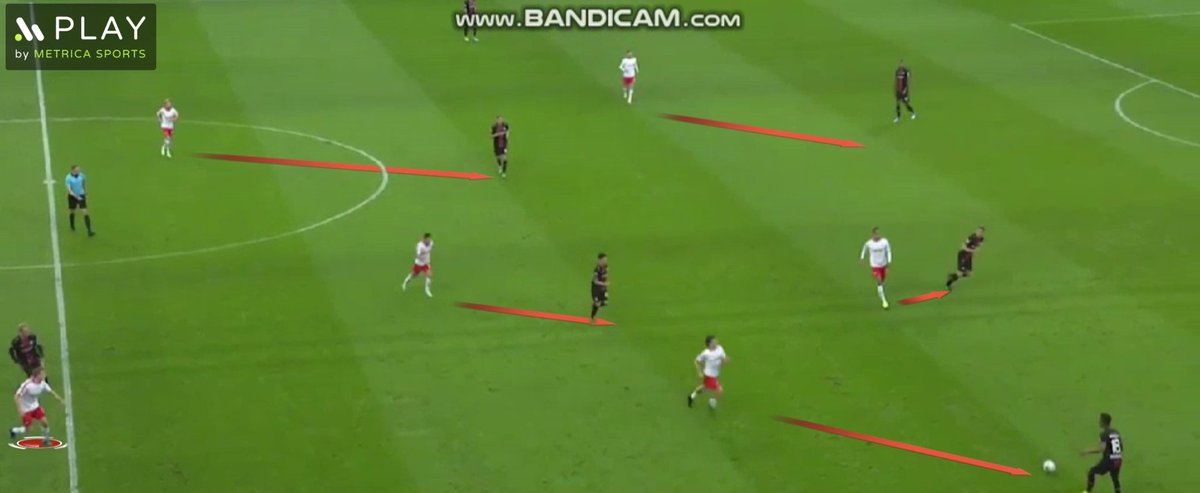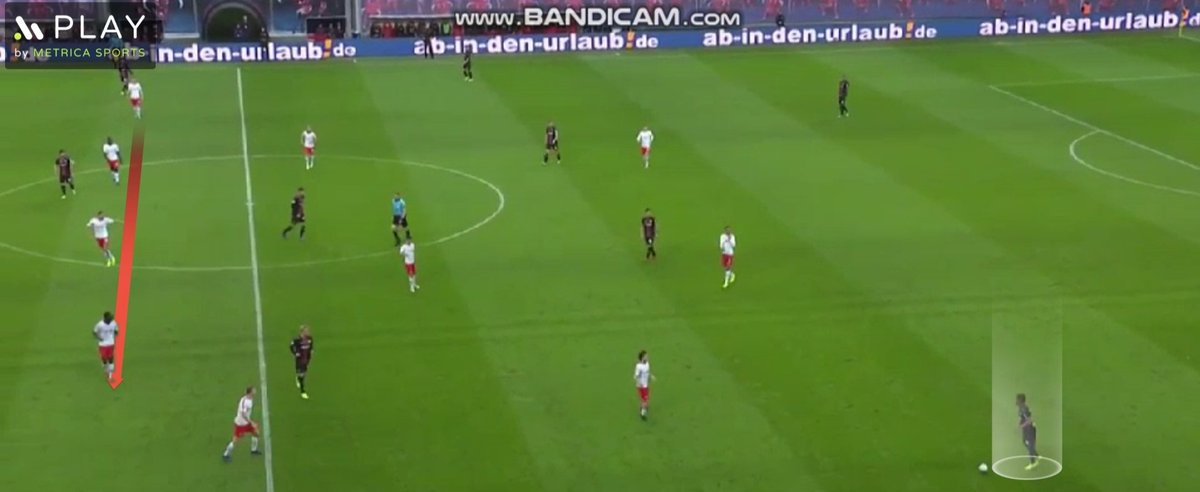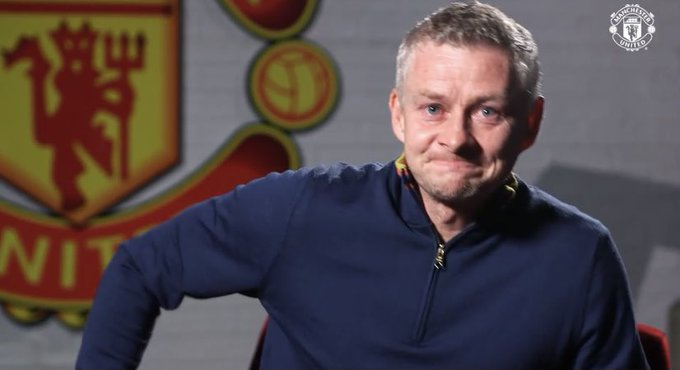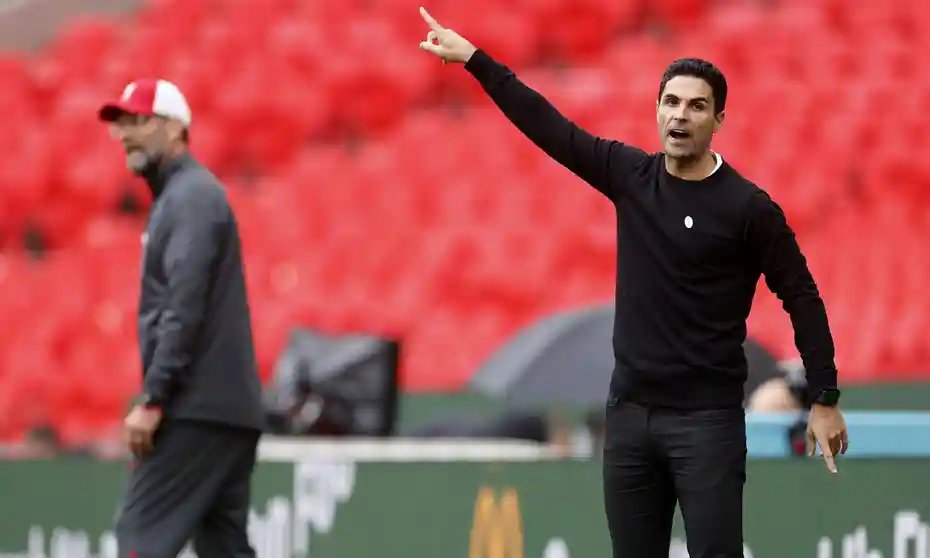
In anticipation of Rangnick taking over as Manchester United manager for the remainder of the season, I decided to take a deep-dive into his practical managerial qualities. Lots have discussed his philosophy, but few have analysed it in practice. Below, I do just that.
THREAD!
THREAD!

Ralf Rangnick is a flexible coach who adapts his tactics & style of play to the opposition by playing a number of different tactical styles. Upon analysing some of his games in his most recent managerial stint, it's clear that his reputation as a high pressing coach is warranted.
Rangnick's philosophy and wisdom when speaking about football makes a lot of sense, but how does that translate to the practical world? Well, his managerial style matches up with his deep, intellectual analysis of the game. He prepares his team well & analyses the oppo thoroughly
Rangnick sticks to his set philosophy (pressing high and controlling the game with that pressing) before making adaptations to the opposition. For example, against Favre's Dortmund, he adapted his press to match Witsel dropping in between the two CB's when building play. 

Rangnick's entire philosophy centres around creating defenders overloads on the byline i.e. using the byline as an extra defender. RBL shift across to match up on the sides here and the angles in which BVB can play at are limited. The byline is closed off & all players are marked 

Rangnick's system against Dortmund essentially replicated Klopp's Liverpool in the sense that they pressed in a 3-3 offensive shape with the fullbacks pushing on aggressively to press the play to support the outside midfielders when shifting across too. Again, adaptable. 

Ragnick similarly implemented the concept of defensive overloads on the byline against Bayer Leverkusen except in a 5-3-2 shape. Again, the concept remained the same - invite the opposition wide and collapse the play. This is a staple of play we can expect to see at United. 



However, some problems did arise within the 5-3-2 block. Often times Ragnick's team attempted to collapse the play on the sides to create that defensive overload on the byline but the wide midfielders were left with too much space to cover after play was circulated. 

The wide midfielders having a large amount of ground to cover resulted in Leverkusen's fullbacks having quite a lot of time on the ball. A combination of an incredibly aggressive high line and a player in a deep phase with time on the ball is disastrous. This will be punished. 

If someone like Andy Robertson had the ball in that position he would hook the ball in beyond the last line to the willing runner in Mo Salah and Sadio Mané. The block would be completely pulled apart and they'd be free on goal. This is a relatively common theme for Ragnick.
At times, the defensive overloads on the byline are superb. However, on other occasions, the initial line of pressing can be passive when inviting the opposition to pass wide. Against the elite quality in the PL, Ragnick's pressing will need to be more consistently aggressive.
The staple philosophy, implementation and understanding of Ragnick's tactical principles are good, but the lack of aggression from the front line of pressing can see the block become passive and forced back/exploited. Often times they can be too hesitant when waiting for triggers
Alternatively, in possession, from a structural point of view, Ragnick's teams play a variety of different styles varying from the 3-1 build-up within the 5-3-2/diamond or a 2-2 build-up within a standard 4-2-3-1/4-4-2 shape. 



Creatively, Ragnick's entire philosophy centres around pressing. The quality of the press determines how good the team are creatively and control-wise. However, because United have top players, they'll have settled possession too, and Ragnick likes fluid combination play.
Within the 4-4-2/4-2-3-1 Ragnick encourages his forward on the right to drift to the closest side to combine with the right back, right central midfielder, and right winger, and the same dynamic is seen on the left hand-side or in other systems (the diamond and 5-3-2).
So, within the 5-3-2 shape, the outside midfielders were required to drift high to combine on the sides. In the below images, play was circulated from the left to the right as the combination play wasn't possible to execute on the left, but it was on the right (overload). 



Overall, it's clear that based on elite managers' appreciation of Ragnick, his track record in building clubs, his words, and his tactical ideas on the pitch that he is an elite football mind. However, to succeed in the PL, he might need to increase the aggression of his block.
• • •
Missing some Tweet in this thread? You can try to
force a refresh












